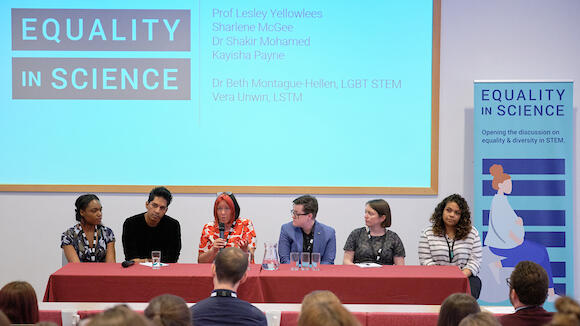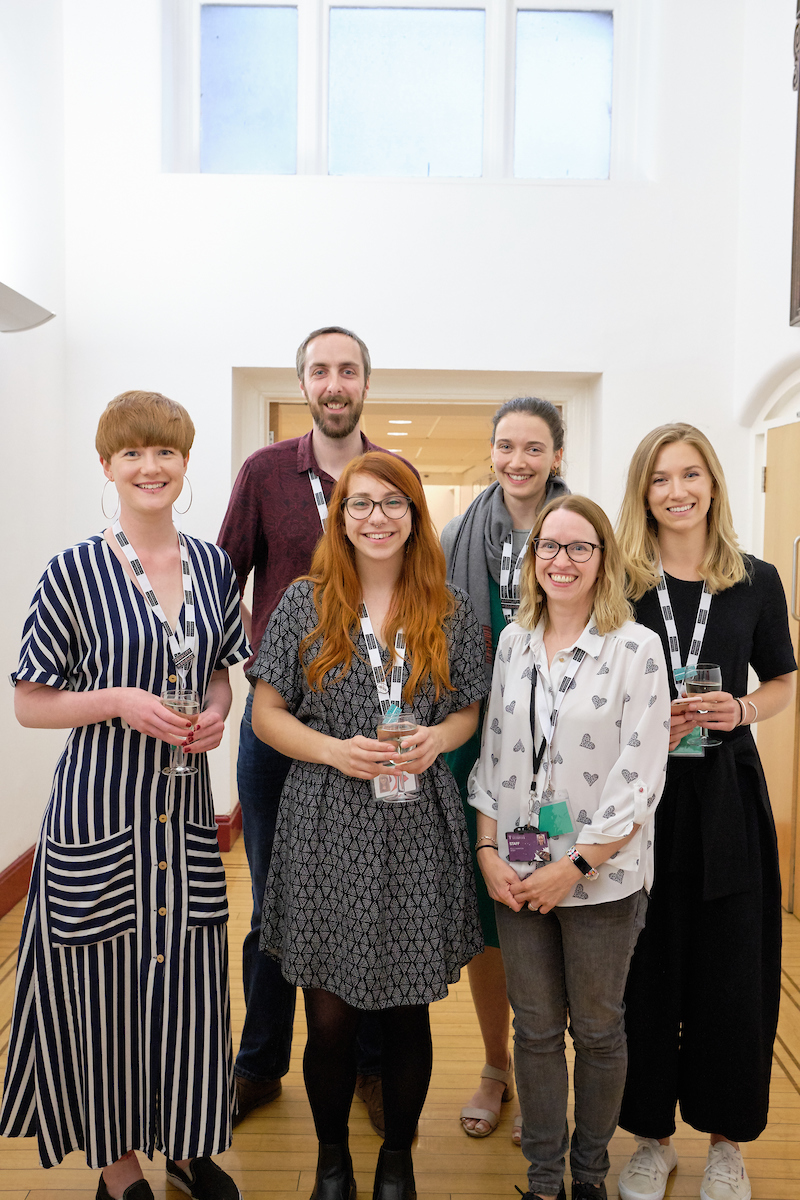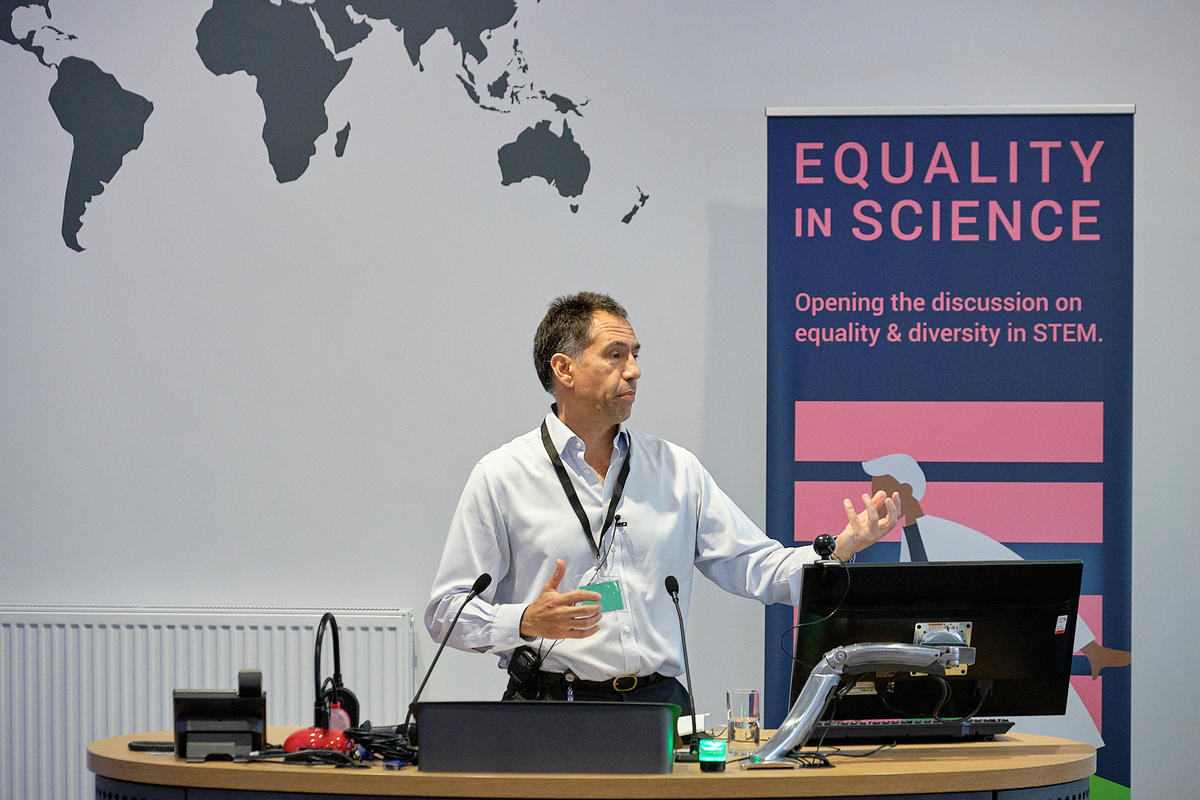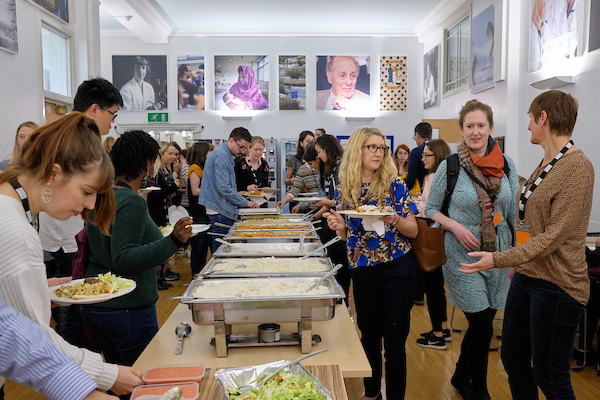
This week the Equality in Science symposium, organised by a committee of PhD students and early career researchers, was hosted at LSTM . The Symposium examined and discussed the status of equality and diversity across STEM subjects.

Organisers Gala Garrod, Katherine Gleave and Natalie Lissenden supported by a committee of colleagues, picked up the reigns following LSTM’s 2018 Women in Science conference. The team said: “We are really pleased with how the symposium went and hope it has generated some interesting conversations around the state of equality and diversity within STEM. We think the whole audience were challenged by the content and we hope they were left thinking about how we can all use our own personal reach to move things forward. We think the day showed the progress that LSTM has made, as well as highlighting what more there is to be done at an institutional level to promote fairness and equity for all. We have received very positive feedback already which is encouraging.”

The day was opened with a welcome from LSTM’s Director Professor David Lalloo and featured a number of other speakers and panel participants from LSTM, along with those from a range of academic institutions, funders and charities in the sector
The symposium was divided into three sessions with speakers examining themes such as institutional responses to equality, and barriers to career progression for underrepresented groups. The sessions were followed by panel discussions and an opportunity for questions. Speakers from several academic institutions from across the UK talked about schemes such as the ECU race equality charter and Athena SWAN, and how they had been implemented to promote equality and equity within institutions. Looking at how institutions can build welcoming cultures and how to address issues such as the gender, racialisation, and ethnicity pay gaps. We heard from speakers from organisations which support and promote unrepresented groups, including Black British in STEM, LGBT STEM, and Leonard Cheshire.

The afternoon saw speakers from funding agencies such as Wellcome and the Bill & Melinda Gates Foundation, alongside a presentation from Lancet Global Health, looking at how they and their parent publisher are trying to move to be more representative as a platform presenting research from authors within endemic countries. The day was finished off with a vibrant closing comments from Dr Jess Wade, a physicist from Imperial College London who has created over 600 Wikipedia biographies about notable female academics to raise the profile of women in science.